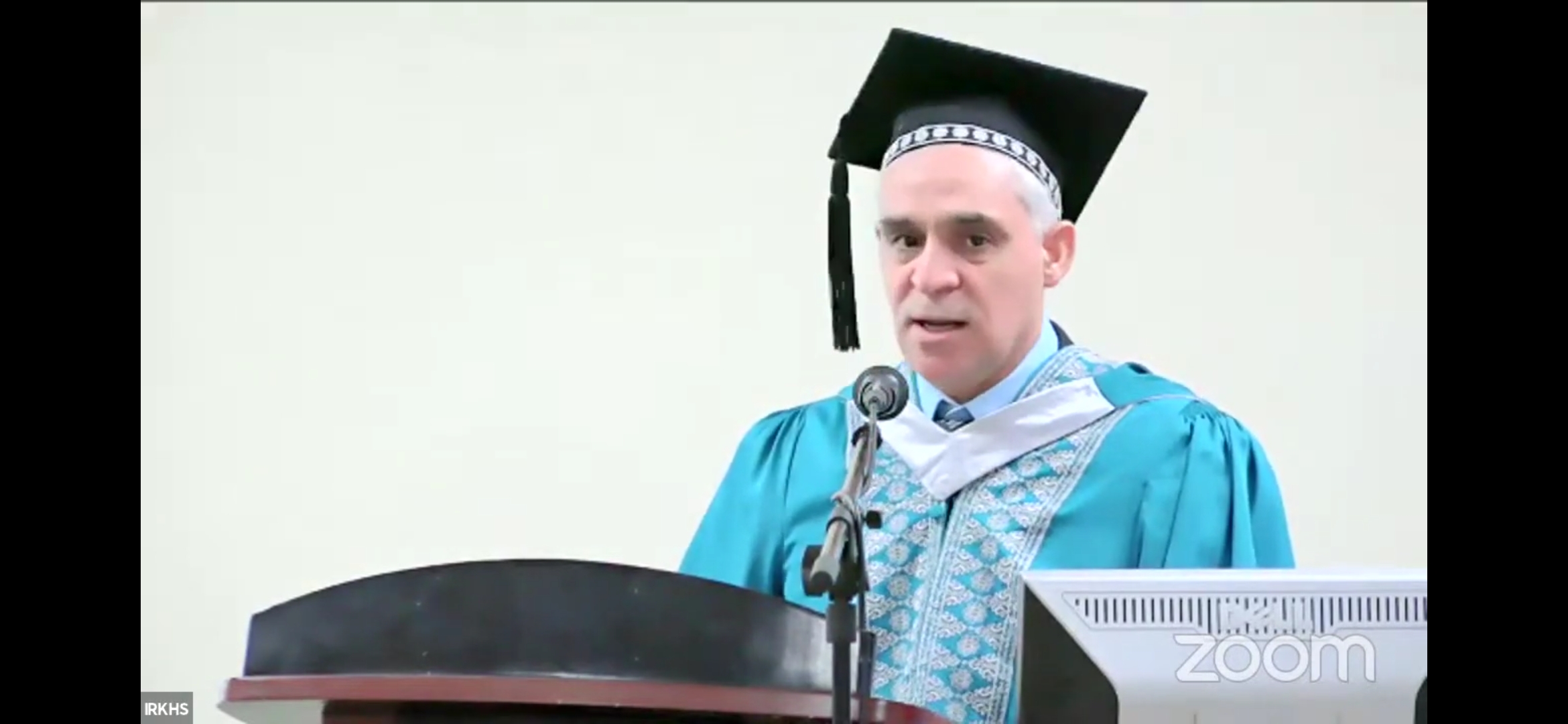By Iylia Marsya Iskandar
GOMBAK, 17 April 2021: Contrary to popular belief, the Islamisation of knowledge is not just Islamising western knowledge but is the study of the foundations of knowledge from an Islamic perspective.
This view was shared by Prof. Dr. Abdelaziz Berghout from the Department of Fundamental and Interdisciplinary Studies (FIDS) in the Kulliyyah of Islamic Revealed Knowledge and Human Sciences (KIRKHS) Professorial Lecture Series on Friday morning (16 April).
In his lecture titled œInstitutional Islamisation Project: From Epistemology to Integrated Educational Model, Prof. Abdelziz stressed on developing an integrated value-based educational system in contemporary times.
He stressed on building an Islamisation of the educational system that is focused on bringing back the dynamic role of the Islamic worldview, methodology and epistemology in educating the ummah and creating an education system where we can groom and nurture scholars who can think and produce knowledge.
An Islamic value-based educational system will be the basis on which the social, political, economic, culture and civilisation could be revived.
œThrough this process, we can nurture new scholars, front-liners and leaders and they become part and parcel of the development of the ummah, the professor shared with the audience.
With this, he said: œWe need a resilient, dynamic Islamisation project that can cope within changes. It is also important to understand issues that are happening in the world to develop a comprehensive educational system that is not outdated.
Prof. Abdelaziz also emphasised that œwe cannot teach the social sciences, human sciences and natural sciences syllabus from five years ago as the world is rapidly changing in this era of Artificial Intelligence and the Fourth Industrial Revolution.
œThe things that we used to learn in four years, the new learners can learn it in one year so what will happen to our degrees in the future? Are we teaching knowledge or way of thinking to create and nurture people who are intelligent and smart? he asked.
He told the audience that Islamisation of knowledge is to teach the foundation of thinking and to teach the way of dealing with the Quran and sunnah and other knowledge.
Islamisation is the knowledge that helps a lecturer to know the basics of how to think using the Islamic worldview so that other disciplines will be able to articulate the Islamic values and ideologies in their fields such as in teaching, research and applications.
By integrating it into their teachings and way of thinking, lecturers will be able to produce students with the Islamic way of thinking.
Prof. Abdelaziz also shared on the Value-Driven Processes of Islamisation that includes five stages including the development of the Islamic paradigm of knowledge, nurturing the project bearers, institutional Islamisation of knowledge ecosystem and culture, developing value driven education and generate solutions and alternatives for societal development as Muslims are khalifah of this earth.
Sustainability studies are important to the Islamisation process.
He said: “Sustainable Development Sciences will become another product that we can show the application of Islamisation as in Islamic Finance as it is a worldwide project. If we can show Islamisation of knowledge then it can reach a global impact.
Reflecting on IIUMs very own model of the Sustainable Development Goals summarised by IIUM Rector, Prof Abdelaziz implored the audience to utilise the model to integrate Islamisation in IIUM.

Earlier in his opening remarks, the Dean of Kulliyyah of Islamic Revealed Knowledge and Human Sciences (KIRKHS), Prof. Dr. Shukran Abd Rahman shared that this is the first instalment of the KIRKHS Professorial Lecture Series that fits the philosophy of education and the idea of a university.
Organised by the Office of the Dean, KIRKHS, the lecture was held in the Seminar Room, KIRKHS attended by the Dean, the Deputy Deans, Heads of Department and representatives from student societies.
The event was also live-streamed through the KIRKHS YouTube Channel and followed by other lecturers and academic staff of the kulliyyah.***
